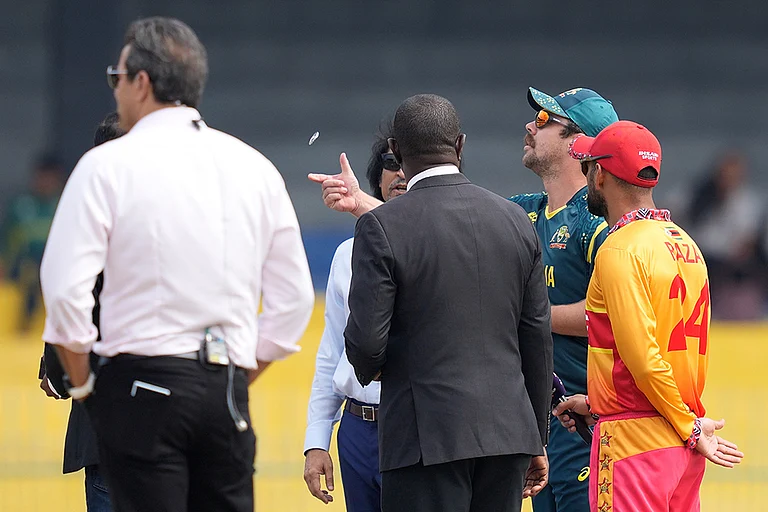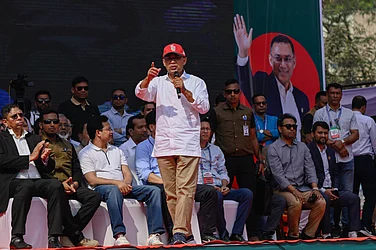For the kin of Sri Vennela, 21, and Thanniru Shivani, 24, the new year began with hopes and dreams after the birth of their children at the Government Area Hospital in Malakpet. But hours after their caesarean deliveries, both mothers developed complications, with their pulse and blood pressure dropping. They were shifted to Gandhi Hospital for further treatment but died without seeing their children’s faces.
According to health officials, nine other women had undergone C-sections the same day on January 11. They were put on a dose of antibiotics as there were indications of infection and sepsis, raising suspicions over issues with sterilisation of equipment used for the surgery in the Malakpet hospital. The kin of the women alleged that despite informing the hospital staff multiple times that the health of the two women was deteriorating after the surgery, the medical staff ignored it, and only later did they shift the women to Gandhi Hospital. This is not the first instance of alleged medical negligence or complaints of sub-par quality of medical equipment being reported from government-run hospitals in the state.
In another instance, in late 2022, four women from the Rangareddy district near Hyderabad died after undergoing a botched sterilisation procedure at a government hospital in Ibrahimpatnam. An inquiry committee formed to probe the incident recommended disciplinary action, including filing criminal cases against those who were found complicit.
Medical practitioners say that strengthening the primary health care system in the state is of utmost need, apart from focusing on developing tertiary care and medical colleges. "In comparison to neighbouring Kerala and Tamil Nadu, primary health care is completely neglected in Telangana. There is a lack of 24x7 PHCs and CHCs in rural areas of the state. Even in the existing public health care centres, specialists are not being recruited," says Dr Mahesh Kumar, a primary health care doctor who is also part of the Healthcare Reforms Doctors Association.
The state currently has 21,000 hospital beds in government hospitals, even though as per the World Health Organisation’s guidelines, the state should aim to have 1,10,000 beds, considering the population’s needs. Further, as per the Rural Health Statistics 2021-22 report released by the Union Health Ministry, the shortfall in primary health centres (PHCs) increased from 12 per cent in 2020-21 to 19 per cent in 2021-22. Nationally, the average shortfalls were 31 per cent for PHCs, 36 per cent for CHCs and 25 per cent for sub centres, but the situation in Telangana worsened from 2020-21, when there were 12 per cent and 53 per cent shortfalls in PHCs and CHCs, respectively.
This shortage is particularly highlighted in the plight of Swarna, a resident of Yelmapalli village of Amrabad Mandal in Nagarkurnool district, who had to travel 124 km, from one Primary Health Centre to the next, while experiencing labour pains. She visited a total of five government hospitals, but all of them turned her away due to the unavailability of necessary equipment. Despite reaching the final hospital in Mahbubnagar at 2 am, Swarna passed away shortly after a normal delivery. Her newborn too succumbed. The shocking incident prompted criticism from locals who said that despite desperately seeking urgent care at five hospitals, no effective treatment was provided to the woman.
Due to a lack of sufficient medical infrastructure, there is also rise in the practice of quackery in the state -- wherein unqualified medical practitioners lure patients on the pretext of money, putting many innocent lives in grave danger, Kumar says. The HRDA has submitted representations to the Health Department, urging action against quacks, but thus far, no response has been received, he says.
Despite the crumbling primary health care facilities, on the ground, political parties haven’t been addressing these concerns in the weeks leading up to the polls. While health-related schemes including Palle Dawakhanas in rural parts, the Telangana Dialysis scheme for kidney patients, the KCR Nutrition kit for pregnant women and another kit for new mothers, and ambulances for pregnant women, are frequently brought up by political leaders while highlighting the achievements of the government, Telangana dedicates only five percent of its budget to healthcare, compared to an average of 6.3 per cent allocated by other states in the country. During the COVID-19 pandemic in 2021, the state's budget for healthcare fell below three per cent.


























